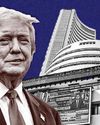
Declining prices, decreasing exports and imports, rising unemployment, and an unfolding crisis in the real estate sector are key concerns highlighted by both international and domestic media. Leading international banks and rating institutions forecast that China’s growth rate may remain below 5% for the current year, with projections of 4.4% and 4.2% for 2025 and 2026, respectively. This trend is attributed to the real estate crisis, weak consumer demand, and the aging population in China. China’s share of global GDP, which stood at 18.3% in 2021, declined to 16.9% by 2023. This shift prompts reflection on whether this is the same Chinese economy that boasted the world’s fastest growth from 1978 to 2018, averaging 9.5% annually.
China’s Development Path
A review of China’s economic history reveals that from 1949 (the year of China’s independence from Japan) until 1976, under Mao Zedong’s leadership, China’s economy was largely state controlled. Critics argue that Mao’s development model confined China to a primarily rural and underdeveloped economy. In 1978, facing demands for additional investment in strategic sectors, Deng Xiaoping, a prominent Chinese leader, initiated market reforms, opening the country’s economy to outside influences. Deng’s approach focused on transforming rural industries, fostering private businesses, and liberalizing foreign trade and investment. Post-1978, China prioritized investment and export-oriented manufacturing, earning the moniker “Factory of the World” due to factors such as low labor costs, favorable tax structures, robust infrastructure, and a weak currency (the Yuan).
This story is from the May 01 - 31, 2024 edition of BUSINESS ECONOMICS.
Start your 7-day Magzter GOLD free trial to access thousands of curated premium stories, and 9,000+ magazines and newspapers.
Already a subscriber ? Sign In
This story is from the May 01 - 31, 2024 edition of BUSINESS ECONOMICS.
Start your 7-day Magzter GOLD free trial to access thousands of curated premium stories, and 9,000+ magazines and newspapers.
Already a subscriber? Sign In

Bank of Baroda, Kolkata Zone organised Mega Kisan Melas in West Bengal
Bank of Baroda (BOB) organised Mega Kisan Mela at Konkalitala in Birbhum District of West Bengal on November 18, 2024 as a part of the 7th Edition of the Baroda Kisan Pakhwada (BKP).

Time-Bound Disposal of Cases to Expedite the Delivery of Justice and affordabe by all in India
The delay in the disposal of cases in Indian courts remains a significant hurdle to the nation's progress.

Dev Deepawali: A grand celebration of light, spirituality, and culture in Varanasi
The holy city of Varanasi, often regarded as India's spiritual and cultural heart, came alive with the splendor of Dev Deepawali on the sacred day of Kartik Purnima.

The life of Job 'Ye judge not the judgment of God' - Jesus Christ
The Holy Bible reveals through the life of Job how the Lord tests the righteous and that faith helps one to overcome life's adversities.

India has the highest potential for the garment industry, only a conducive government policy is required.
India's textile industry is poised for remarkable growth, with expectations to double its contribution to the GDP within the next six to seven years.

Global Public Debt may be worse than it appears, warns IMF
Global Public Debt Set to Exceed $100 Trillion, Warns IMF

The economic consequences of Trump's Presidency: A global perspective
One of the key economic factors contributing to the Democrats' loss in the US elections was the significant rise in inflation, which was initially triggered by the COVID-19 pandemic and exacerbated by the Russia-Ukraine war.

Challenges and Successes in West Bengal's Education Sector: A Comprehensive Overview
The education system in West Bengal, particularly in districts, villages, slums, and government institutions, reflects a blend of progress and ongoing challenges.

What India can expect from Trump's return
I may be too early to predict how Donald Trump's second term as president will impact the global oil market.

Stocks Surge Following Donald Trump's Election as 47th President of the USA
Stocks soared following the election of Donald Trump as the 47th President of the United States. Investors anticipated that the Information Technology (IT) sector would benefit from lower corporate taxes under the Republican regime, with IT stocks leading the rally.